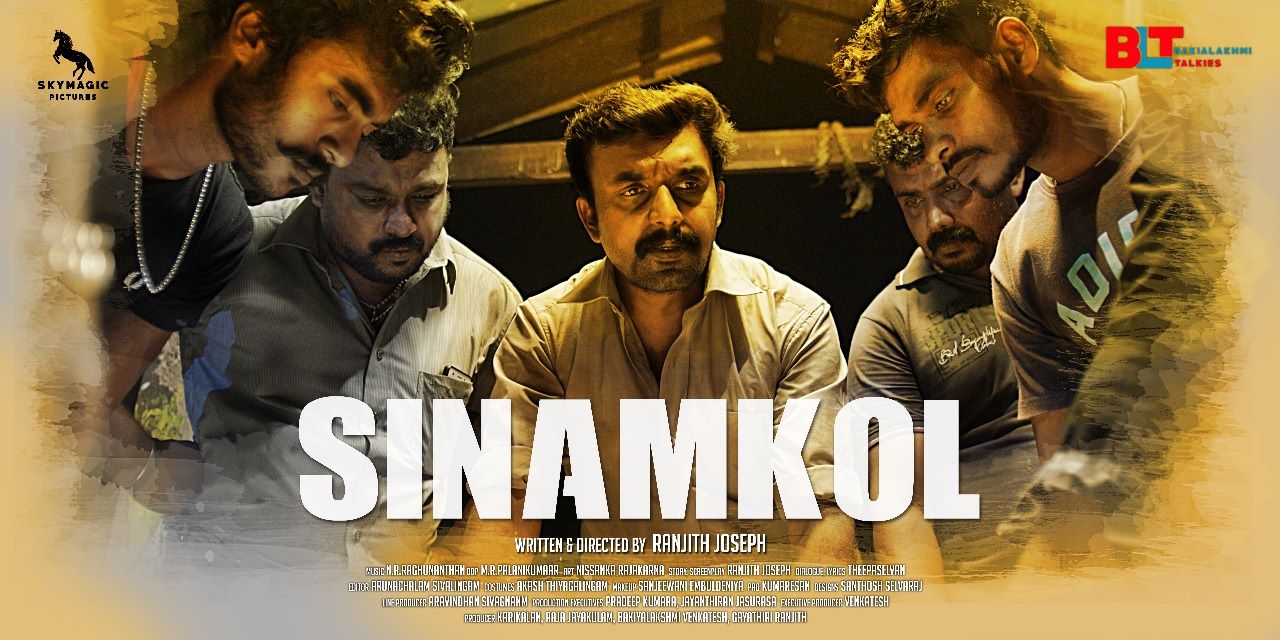‘I’ve been working for the last ten years to create this film’ – interview with director of Sinamkol

In anticipation of Sinamkol’s extended release, director Ranjith Joseph spoke with the Tamil Guardian to provide an insight into how he created Sinamkol, the first film to be directed from a post-war Tamil Eelam perspective.
‘I met fighters and learnt about their pain, and the war’.
In response to the question of what gave him the inspiration of cinema and the desire to tell the story of the Eelam people, Ranjith stated “my grandfather was a great storyteller, he was renowned for his work in Naattu Koothu - a form of Tamil story telling and performance and I got an interest for story telling from that. During the war time, as there was no school he would sit me down and tell me stories”.
“I initially started reading about Tamil Eelam, the culture and it’s people from the multicultural section of my local library in Canada. And when I went to film school, I wanted to be famous and rich. But what changed this thought was when I went back home in 2005 and lived in Vanni for 4 months. I met fighters and learnt about their pain, and the war. I understood that I don’t need to make commercial films. What I need to showcase was my people’s stories, our fighters’ stories and Eelam independence. Because cinema is a powerful medium to take their stories to an international audience, for example Channel 4’s Killing Fields and Hotel Rwanda. Only after watching Hotel Rwanda did I come to understand the genocide that had taken place in Rwanda. Ever since 2009, I’ve been working for the last 10 years to create Sinamkol”.
“I had 80 people and filming was cut off for 15 days”
When asked how he managed to film in the North, the director responded by describing how “we had a lot of problems everyday. When you want to do a film in Sri Lanka it is not easy. You normally make a movie and then censor it, but in Sri Lanka you must send the script to the censors first. After their review, they tell you what to change.
They sent monitors everyday and they would watch every scene. If we were to film something new that was not on the script they wouldn’t let us and we were instructed to go through the laborious process of re approval.
It is very difficult to create an Eelam film within this climate. So we altered the script that was sent to the Sri Lankan censors. Within the first 10 days, the government stopped the movie. I had 80 people and the filming was cut off for 15 days, this meant our production expenses doubled. As a result, we looked to approach this legally and with politicians, like minister Mano Ganesan”.
“A production company had the film for 6 months and did not release it”
When asked about how he marketed this film, Ranjith stated how “Indian movies have a market, distributors all around the world. But when it comes to the Eelam movie, we have no one. Therefore, I had to go to a lot of distributors.
A massive, Eelam Tamil owned production company had the movie for 6 months and did not release it, this is when we realised they had business in India and Sri Lanka, and they feared the film could have detrimental effects on this business. Norway based, Eelathirai was the production company to come to our support. They also felt that Eelam movie films created in Sri Lanka have never had an international audience. So they tried to screen the film in as many markets as possible though we had no investment. The box office business was really positive in the first 3 days. We believed this film has provided the platform required for future Eelam films to be released. I have a dream to show this film in Sri Lanka”.
A special screening of the film will take place on Sunday, 23rd Feb at Harrow Safari Cinema. For details see here.
For information about more screenings globally see Sinamkol on Facebook.
We need your support
Sri Lanka is one of the most dangerous places in the world to be a journalist. Tamil journalists are particularly at threat, with at least 41 media workers known to have been killed by the Sri Lankan state or its paramilitaries during and after the armed conflict.
Despite the risks, our team on the ground remain committed to providing detailed and accurate reporting of developments in the Tamil homeland, across the island and around the world, as well as providing expert analysis and insight from the Tamil point of view
We need your support in keeping our journalism going. Support our work today.
For more ways to donate visit https://donate.tamilguardian.com.

